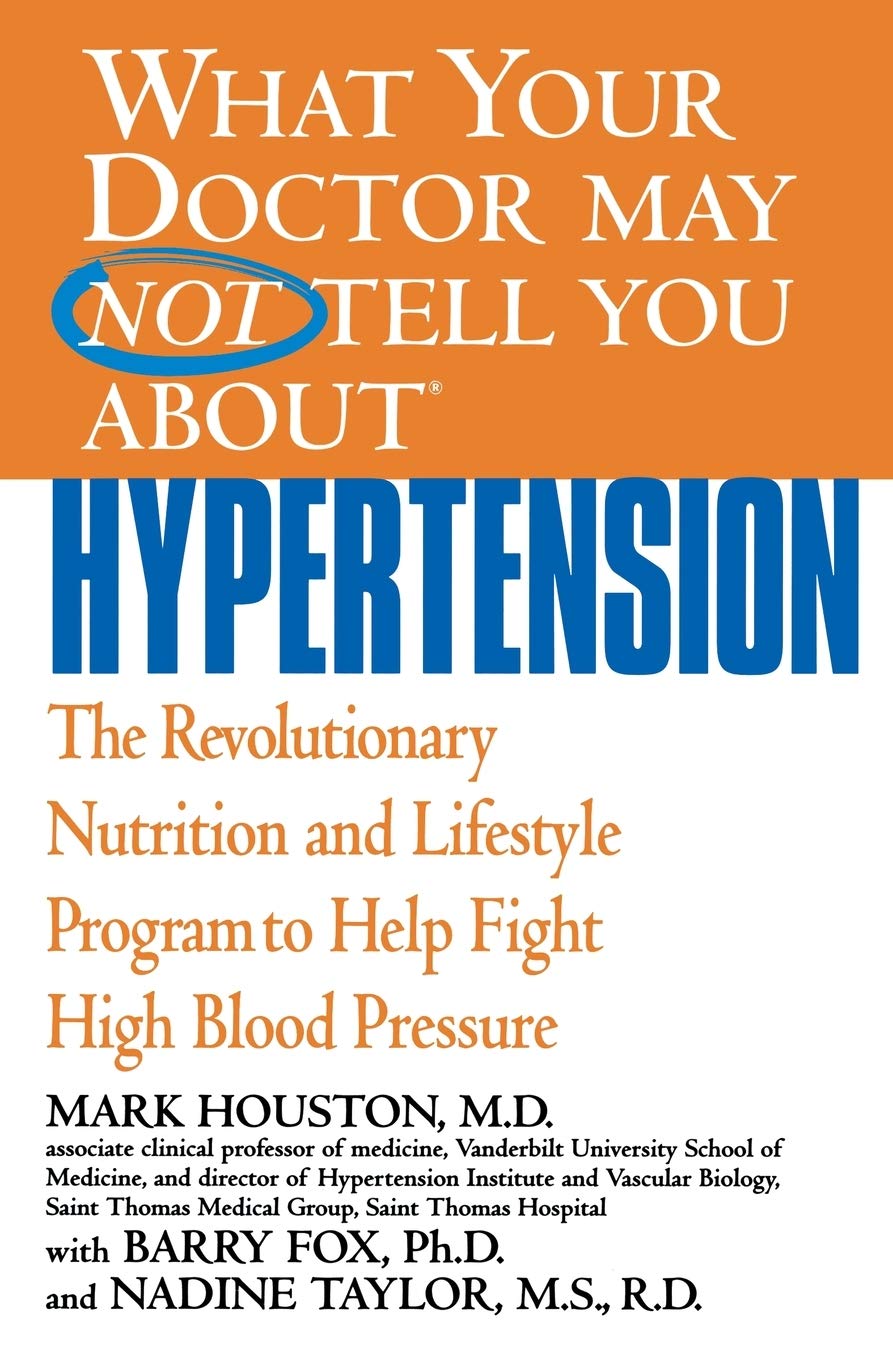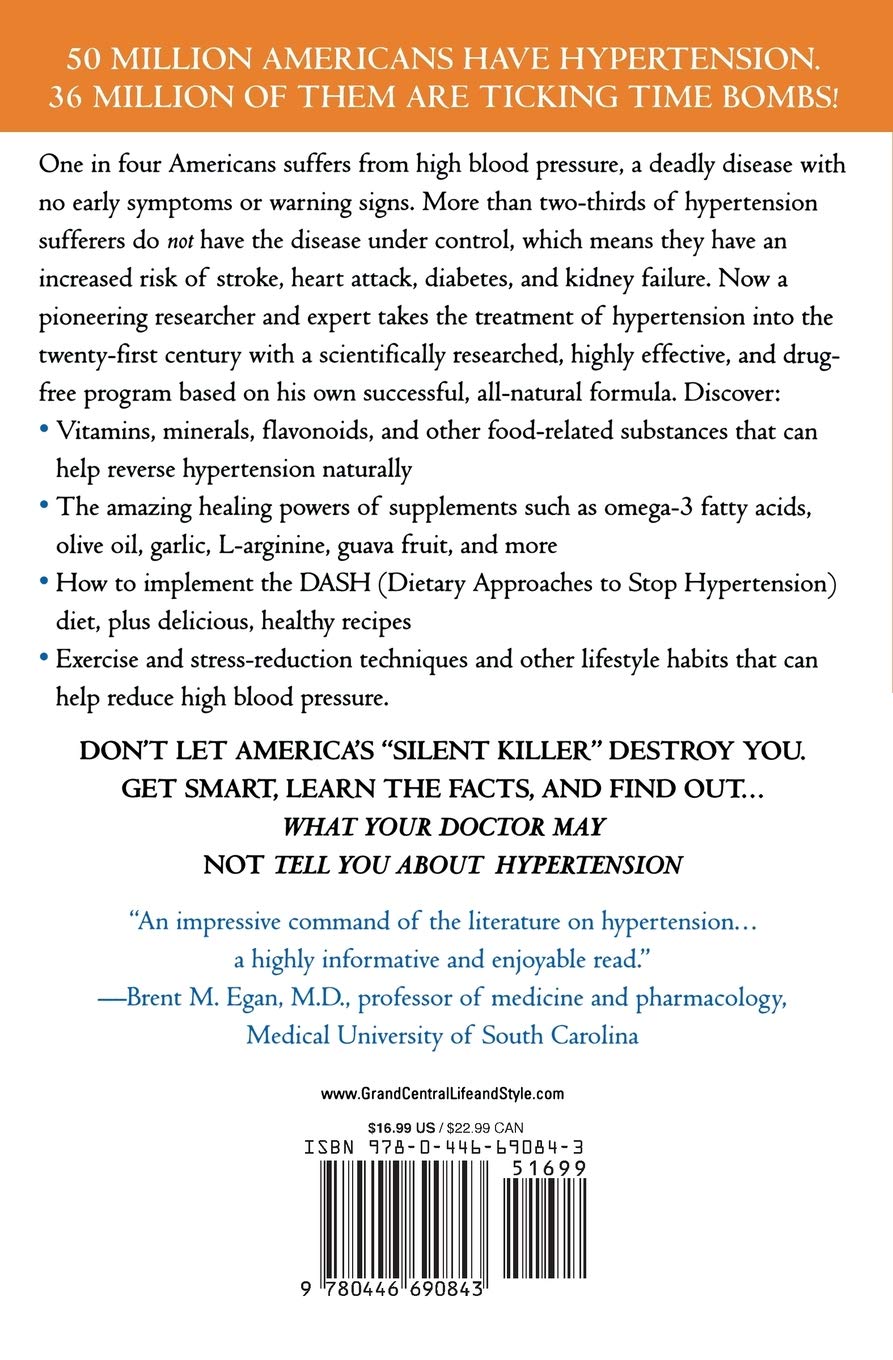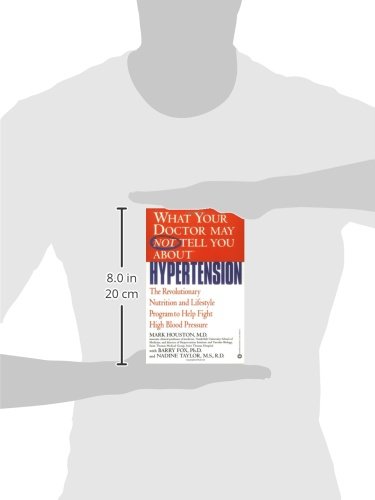



Full description not available
G**N
A very good, but nut totally correct, book concerning the High Blood Pressure problem.
3 ½ years ago some of the books concerning health, which I then were buying, was especially about the high blood pressure, after my wife, in a hospital, then had been measured to have a little bit to high blood pressure. But without doubt only coursed by perversity, which is the case for up to 25 % of the persons measured in the hospitals. Then 5 days ago I discovered that I not yet had been reading this book, but now it's done, and I have my remarks.All together it's a very informative and detailed book, but in my eyes, it also is having 3 "small" failures concerning some important details. On the side 58, in the chapter "The Multifaceted Solution", we have the bottom part "Omega-3 Polyunsaturated Fatty Acids". Here, and on following sides in the book, we newer are told that it's optimal to get the Omega-3, opposite to the Omega-6, in amounts being around 1 : 1.5. Because in the western eating, now a days, we mostly are getting the Omega-3 opposite to the Omega-6, as being between 1 : 20 and 1 : 30 which results in a big unbalance; being very bad. And neither in the part starting on the side 64, the "Olive Oil", are we told that it is the content of Omega-3 which makes Olive oil the most healthy food oil in the World.But further, then on the side 65, just after the "Olive Oil", we then start reading the part "Vitamin C", we have a detail which make me wondering further more. In the bracket, we by Excess: are reading "Excessive dosages (over 2 grams per day) can cause diarrhea". But in reality nearly all persons, from the start can be taking much more than 2 grams per day and during the following days slowly increase until the personal maximum is found. And as we remember, Linus Pauling, who made the C vitamin famous, and who also is mentioned in this book, he personally was taking 18 grams/day. And in other books, as for example books written by Andrew W. Saul and/or Hoffer, we again and again are learning about persons getting 100 grams/days, or even 200 grams! And in other books we are reading about how nearly all animal in their body are producing C vitamins equal to what for a human person would be like getting around 10 gram/day.But all together, to me, still the book is a very good book, with many important details, concerning the reasons which results in too high blood pressure, and how much the different vitamins, minerals, and drugs, are the key lock when it comes to lowering the blood pressure. And to me, the chapter "If Medicine Is Necessary", is very good, as we here, easier than searching on the Internet, are getting details concerning the drugs, as on the Internet it mostly are the producers, or sellers, that announce for their drugs, and don't tell too much about their backsides.An, to me, it was also interesting, but harder-slower reading, to read the finishing chapter, "A Closer Look at The Studies", as I there was getting many details from many research cases; but still was missing researches in which there were used more than only 2 grams of C vitamin. As we now a days more and more are learning that we must look at the Gauss statistical graph, which tells us that 5 % are extremely little of the vitamins and mineral, opposite to 5 % who are needing extremely much.But all together an important book, so I still am giving it the highest characters.
E**T
Helpful.
I learned enough to start controlling my high blood pressure with diet, exercise, and supplements, instead of the harsh BP meds my doctors had me on. The side effects of the meds were awful. And yes, the alternative methods are working; my BP has dropped from 180/95 to 130/85, and I've no reason to think it won't continue to normalize. Of the supplements, I think the CoQ10 is the best. I noticed one line where the author said he became interested in "alternative" treatments for his own sake; to me, that means he developed HBP himself and he didn't want to take those meds either! Makes you wonder.
T**K
You should buy this very informative book. PERIOD!
Buy it PLEASE!
R**Y
Biased Authors
The authors suggest a diet that any dietitian would approve of for healthy living and then try to make the case that following this diet will lower blood pressure. According to the book, almost any vitamin or mineral supplement on the market will lower blood pressure. Unfortunately, all three of the authors are associated with the neutraceutical industry which makes one wonder about the validly of their message, i.e. are they just trying to get people to buy supplements. I have been following a diet similar to the suggested diet in the book (with vitamin and mineral supplements and exercise) and my blood pressure is still in in the 140-160 mm. of Hg systolic range as it was before I started the diet. So I'm not convinced.
J**H
Just What I Wanted to Know
I became interested in hypertension after I had successfully knocked off 50 pounds of obesity with the Atkins low carohydrate Way Of Eating (WOE).Now I was more positively interested in continuing to aid my state of body health.... and attention turned to Hypertension.What next steps..... after Low Carb......?The DASH (Dietary Approache to Stopping Hypertension) looked good because it also focused on a Way Of Eating (WOE) which was supposed to inprove heart health in a major way. But DASH conflicts with Atkins..... low carb, because DASH is a remix of the AHA (American Heart Association) Low Fat-High Carb way of eating with some other stuff thrown in.Doctor Houston's book modifies DASH ..... and gets it off the narrow focus on LOW FAT & HIGH CARB...... which is what helped keep me fat for so long.I found the book didn't hesitate to be technical at a level that isn't intimidating.The book also provided to me the way out of my dilema of how to transition from Atkins Low Carb to some heart focused healthy Way Of Eating.Dr Houston clearly thinks for himself, and reads medical and nutritional literature with an open mind. Unusual for a Medical Doctor....Thank you, Doctor Mark C Houston.PS: Please put a few more drawings and flow charts in the next edition... those things keep an engineer's attention.
A**R
The nutritional approach to preventing, treating, and minimizing HTN for the average Joe
This is a very readable nutrition book for anyone who wants not only to have a healthy heart, blood vessels and overall healthy organs, but this is a book for anyone who wants to physically thrive. It is timeless information supported with existing research at the time of printing. How great to see that we can get reliable information from mainstream medical and health care institutions to help the average person sort through nutritional hype in the media. Yes, this book targets blood pressure but in doing so, is so much more.
S**S
Excellent Resource
I feel there is a lot of great information in this book, though I don't totally agree with everything that is stated. Examples of those things I have some disagreement with would be the DASH diet, in particular the inclusion of grains, though it seems Dr. Houston's modified version is more in line with what I have seen in other research. I also think there is strong evidence that vitamin C consumption should be significantly higher than is recommended in the book. Even so, this book has earned a place in my reference library, and I will begin implementing some of what I read today, and much of it in the coming days and weeks.
Trustpilot
1 week ago
3 weeks ago